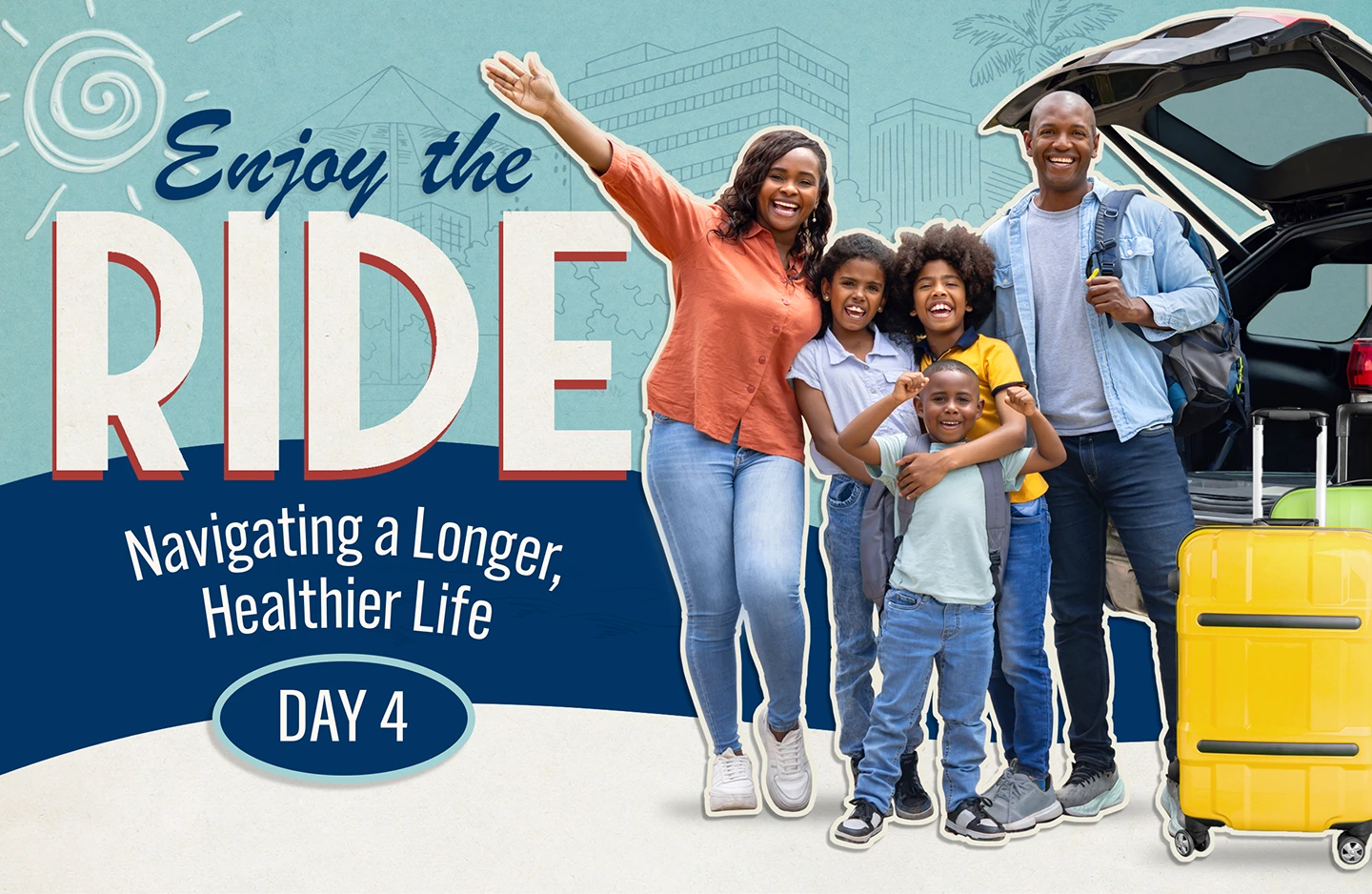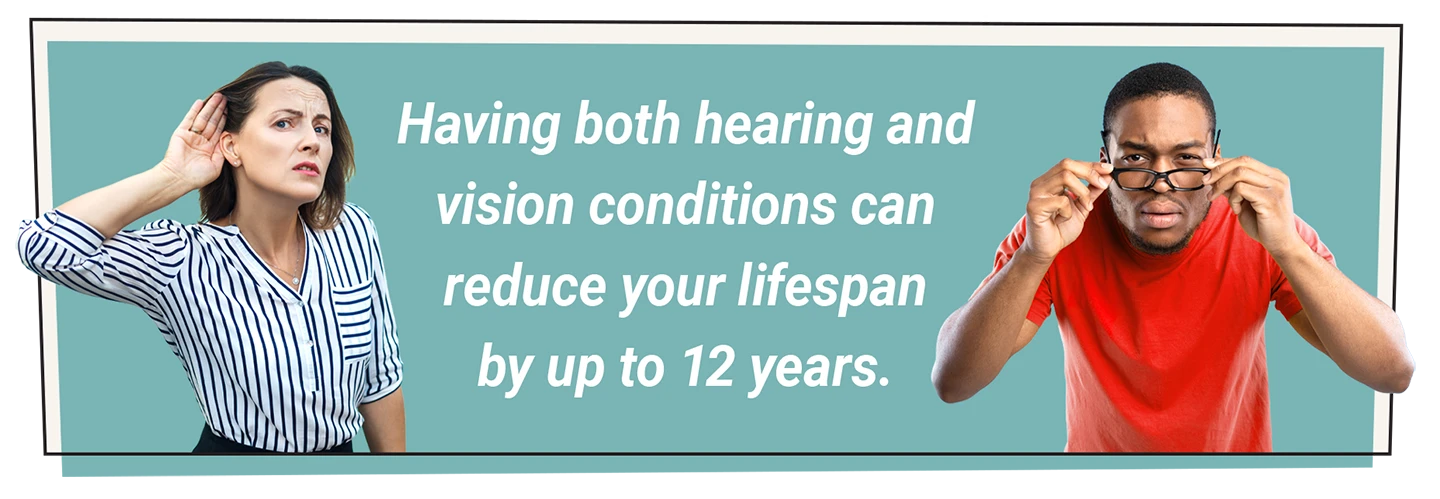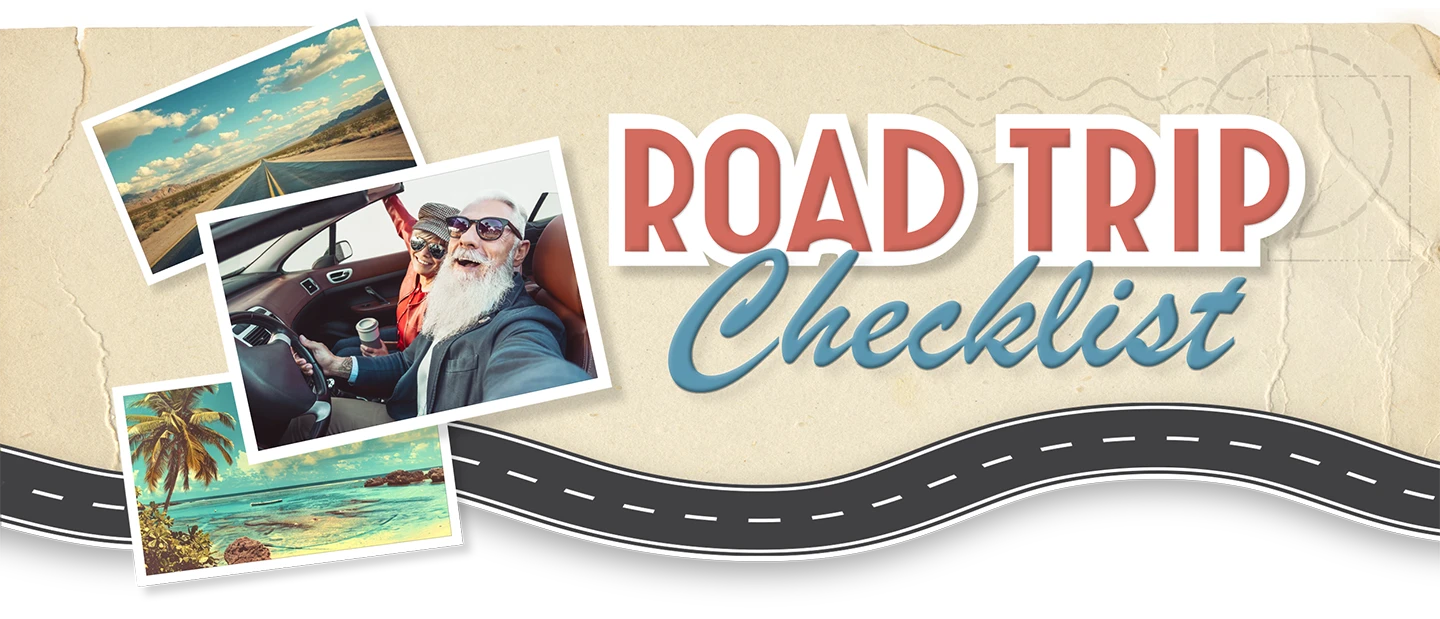
Day 4: Eyes and Ears on the Road
In the 2006 NASCAR comedy Talladega Nights, Ricky Bobby is blindfolded and behind the wheel when his father tells him, “You don’t drive with your eyes. You drive with your heart.”
That is…bad advice, to say the very least.
Of course, we know you’d never drive down the road that way, but maybe it has become harder to see street signs, read the dash or hear an ambulance coming up behind you. Or perhaps you’re worried about how your senses will work down the road. After all, hearing and vision often diminish as we age.
Hearing difficulty is the third-leading disability among older adults (after musculoskeletal conditions and heart disease). Another 28% of Americans 71 and older experience vision impairment caused by conditions such as age-related degeneration, glaucoma, cataracts and diabetic retinopathy. And having both hearing and vision conditions can reduce your lifespan by up to 12 years.
The reason sensory impairments can make the road ahead so bumpy is because it can disrupt balance and put you at higher risk for falls. It also can make it harder to do important activities such as driving, shopping, managing your finances and perhaps most importantly, understanding vital medical guidance.
Sometimes vision and hearing loss disrupt people’s lives so much that they become frustrated and withdraw from their friends and family. That eventually leads to feelings of loneliness, isolation and cognitive decline.
Studies show that people with moderate and severe hearing loss have a 61% higher chance of developing dementia while people with vision loss have a 50% higher risk of cognitive decline. Researchers believe this may be because the brain is neglecting memory processing and using all its effort to decode what we’re having trouble seeing or hearing.
So, how do we know if we’re at risk for hearing or vision loss, and what are some signs that hazards are ahead?
When it comes to hearing, most people start to notice a decline in their 60s, and around age 75, about half of us have trouble hearing. However, some studies show people as young as mid-forties have already noticed changes.

Some causes of hearing loss other than age are medications, conditions like hypertension, frequent exposure to loud noises (like lawn equipment or concerts) and listening to earbuds or headphones at high volumes.
Early warning signs of hearing loss often include trouble hearing people when you talk on the phone, difficulty concentrating on conversations involving two or more people, inability to hear people over background noise, frequently asking people to repeat themselves or turning up the television or your phone so loud that other people complain about the volume.
When it comes to vision, changes start becoming noticeable in our mid-40s. For example, it may be easy to see the road ahead, but focusing on a map or book is another story. Some causes of deteriorating vision are age, diabetes, diets high in saturated fat, excessive UV exposure, family history of vision conditions and having obesity, heart disease, high blood pressure or smoking.
But remember, just like when we notice signs on the road, there’s time to reroute so we can see and hear all the journey ahead has to offer. In fact, glasses, hearing aids and other assistive devices can reduce the risk of falls, cognitive decline, isolation and overall mortality by as much as 50%.
Pump the brakes on these conditions with our tips below!

Every day during the series, we'll share a few tips for a healthier journey. Whether you've drifted off track, need a tune-up or want to stay on course, we can help.

Getting Back on the Road
If it’s been a while since you’ve had your hearing or vision tested, it’s time to make a pit stop. Have your vision checked at least every two years if you’re younger than 65 and annually if you’re 65 or older. Similarly, those 40 and younger should get their hearing tested every three to five years, while those 65 or older should be tested yearly. Adding more Vitamin A, omega-3 and more leafy greens to your diet wouldn’t hurt either!

Tune-Up
If you’re regularly having your vision and hearing tested, that’s great! However, there are still ways you can avoid sensory slowdowns, including wearing sunglasses with 100% UV protection and turning down the volume. Your phone should never be cranked up past the 60% mark and you should wear ear protection in loud environments like concerts or sporting events. And don’t forget to manage conditions like diabetes and high blood pressure that put you at higher risk for sensory conditions.

Cruise Control
You’re wearing high-quality sunglasses, using ear protection when you mow the lawn and getting regular screenings. Great job! Still, when you’re in front of a screen rather than behind the wheel, are you taking the time to rest your eyes at least every 20 minutes? Using blue light-blocking glasses? You also can try to “challenge” your hearing by listening to a podcast that also stimulates your brain.


